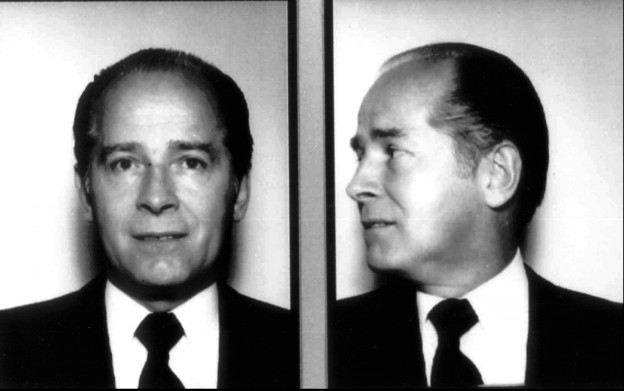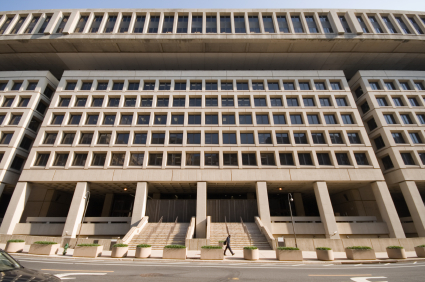Alison McLennan is the author of Falling for Johnny, a suspense novel based on the Boston underworld with a fictional character inspired by James “Whitey” Bulger. She has an MFA in Creative Writing and a Bachelor’s Degree in Behavioral Science.

The media often calls leaders of crime syndicates sociopaths or psychopaths. The term sociopath refers to a subset of anti-social personality disorder, an axis-two diagnosis, which does not qualify someone for the insanity defense.
The DSM-IV defines anti-social personality disorder as “a pervasive pattern of disregard for, and violation of, the rights of others that begins in childhood or early adolescence and continues into adulthood.” As opposed to psychopaths, sociopaths have normal temperaments. They may be risk takers who have a hard time with authority and rules. Sociopaths are often charming, entitled narcissists who use and manipulate people for their own ends with no empathy for others.
In literature, film, and television, the anti-hero is an archetypal character displaying many of the same villainous traits as a sociopath, yet also possessing some capacity, no matter how small, for virtuous acts. Because the flawed anti-heroes are more realistic than those perfect goody-two-shoe heroes beyond reproach, the anti-heroes are more sympathetic and more interesting to non-secular audiences.
The anti-hero constructs an internal narrative which rationalizes and justifies bad behavior. Tony Soprano from the Sopranos, Walter White from Breaking Bad, and Raskolnikov in Crime and Punishment are examples of anti-heroes. For obvious reasons members of gangs and crime syndicates prefer to identify with anti-heroes rather than socio-paths. Within the narrative construct of the anti-hero, criminals are able to rationalize their crimes and inhumane behavior.
The high-profile trial of James “Whitey” Bulger provides a striking example of a crime boss who identifies with the anti-hero. Journalists who have written biographies of Bulger and are currently covering his trial accuse him not only of nineteen murders, racketeering, and extortion but also of “trying to control the narrative.” Indeed, with the mountain of charges Bulger faces there seems little hope of acquittal. The defense is obsessed with repudiating charges that he was an informant and also that he was involved in the murders of two women.
Johnny “the Executioner” Martorano was one of the prosecution’s star witnesses. He took the stand last week and described in detail twenty murders he committed. Matorano cut a deal with law enforcement to testify against Bulger and served only twelve years. His testimony was chilling and bizarre. He showed little remorse and told the court he thinks of himself as a ‘great guy’ who only killed to protect his family and friends. From these statements it appears Matorano preferred to view himself as a vigilante instead of a Hit man or a mass murderer.
Although the narratives of felons may be delusional, understanding the mindset of the criminal “anti-hero” can help federal law enforcement and may be a useful supplement to the traditional diagnostic approaches of criminal psychology. A relatively new field of study called narrative psychology may be tremendously useful in predicting and understanding the behavior of the delusional anti-hero.
As federal law enforcement deals with the next generation of delusional anti-heroes, narrative psychology could become a useful tool. In clinical situations psychologists construct categories to describe deviant behavior, but in real life people construct narratives to cope and make sense of their lives.
The current popularity of the anti-hero means that more disturbed and alienated people will adopt that persona. According to Dr. Katherine Newman of Princeton University, sixteen-year-old school shooter, Jeff Wise, had embraced the anti-hero archetype and was following a video game like behavioral script to act out his narrative.
Public support and trust in federal law enforcement is essential to national security. Yet the high profile trial of James “Whitey” Bulger may have negative public relations repercussions. The trial, which is receiving a lot of media attention, exposes past FBI corruption in Boston and also may lead the public to question prosecution tactics of cutting deals with dangerous killers like Martorano.
This public relations fall-out may necessitate the FBI to construct a new narrative. While the Boston FBI began with the noble intentions of working with Bulger to take down the Italian Mafia, those good intentions were overshadowed by internal corruption and led to the rise of James Bulger, a dangerous and delusional anti-hero who reportedly terrorized Boston for decades.





The corruption in the fbi is endemic globally.
The low thugs and assassins of fbi/cia bring disaster upon this nation; leaks or no leaks the world understands that brutal, murderous and macabre animals run the USA.
My report:
The fbi conjures up images of mass murder and stages a crime in order to harass a fbi whistleblower and in order to fraudulently justify a blanket surveillance; alt links:
http://neworleans.indymedia.org/news/2013/06/18194.php
http://www.indymedia.org.nz/articles/982
http://argentina.indymedia.org/news/2013/06/841292.php
fbi’s covert & homicidal schemes:
http://lissakr11humane.com/2012/12/05/gerel-sosbees-report-on-fbi-cia-dod-criminal-acts-on-targeted-individuals/
historical fbi thugs:
http://www.sosbeevfbi.com/fbimisconduct.html
USA’s thugs manufacture criminals:
http://www.sosbeevfbi.com/governmentmustcr.html
and forges enemies, domestic & foreign:
http://www.sosbeevfbi.com/911caneasilyrevi.html
Personal note: After I published the above reports online the fbi increases assaults on me.
http://www.sosbeevfbi.com/promo.html
For the defense in cases prosecuted by the fbi:
GERAL SOSBEE, ATTORNEY, witness to the macabre culture and grossly unlawful & criminal practices of the fbi:
https://ttu.academia.edu/geralsosbee
gsosbee@gmail
Not certified by the Texas Board of Legal Specialization